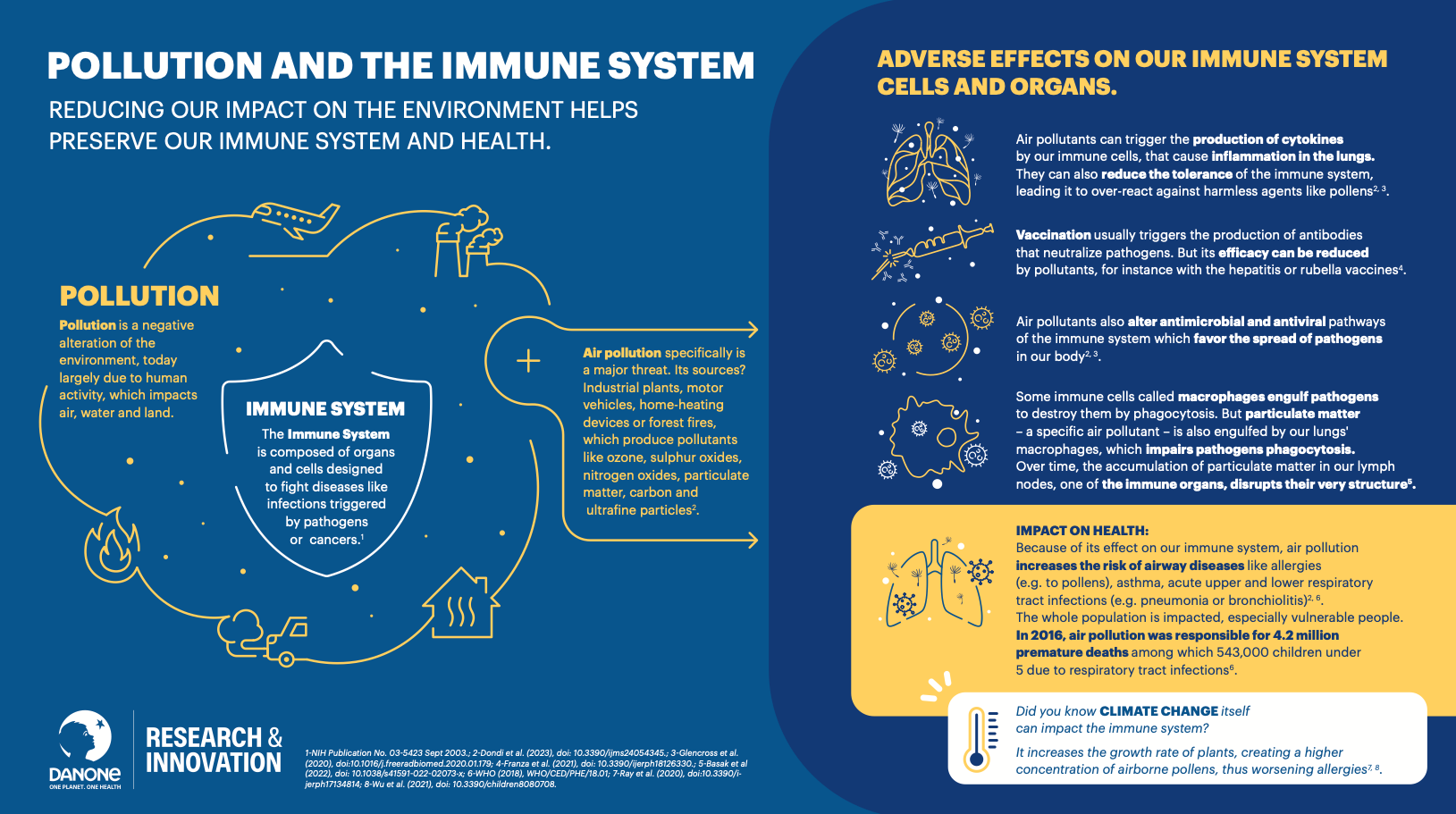Have you ever wondered how the air you breathe affects your health? On World Environment Day, let’s delve into a vital but often overlooked topic: how the air we breathe impacts our immune health.
Pollution has a significant adverse effect on the environment, altering the quality of air, water, and land. Specifically, air pollution can trigger our immune cells to produce cytokines, causing inflammation in the lungs. It can also reduce the immune system’s ability to tolerate triggers in our environment, leading to increased risks of respiratory infections and allergies.
Our infographic, “Pollution and the Immune System,” provides a comprehensive look at how various pollutants, such as ozone, sulfur oxides, nitrogen oxides, particulate matter, carbon, and ultrafine particles, disrupt the immune system in ways that can have long-term effects. For instance, air pollutants can alter antimicrobial and antiviral pathways in the immune system, favoring the spread of pathogens throughout our bodies. Furthermore, particulate matter can impair the phagocytosis process of lung macrophages, a crucial immune function.
Understanding how pollution impacts our immune system is vital for both public health and personal well-being. Did you know that, due to its effects on the immune system, air pollution increases the risk of airway diseases like allergies and asthma? In fact, in 2016, air pollution was responsible for 4.2 million premature deaths globally, including 300,000 children under 5 due to respiratory tract infections 1WHO (2018), WHO/CED/PHE/18.0.
Ready to learn more? Check out our detailed Pollution and the Immune System infographic and explore the ‘Science around the Immune System from A to Z‘ series for more information. Together, we can take steps towards a healthier environment and stronger immune systems.
View References
| 1 | WHO (2018), WHO/CED/PHE/18.0 |
|---|
